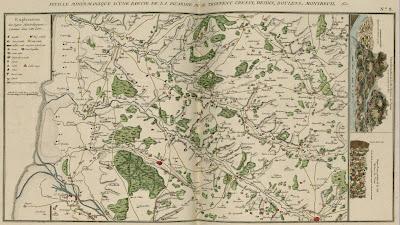
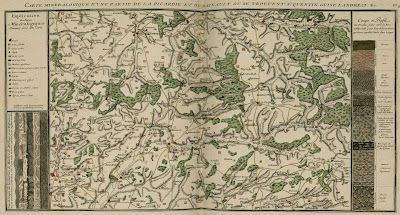
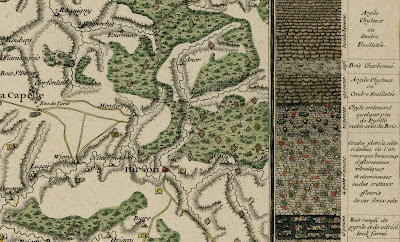

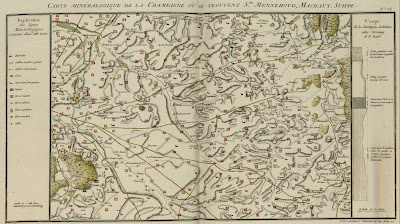
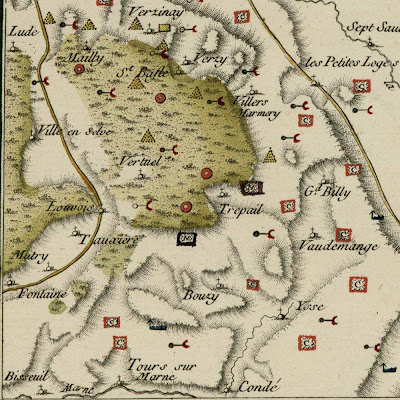

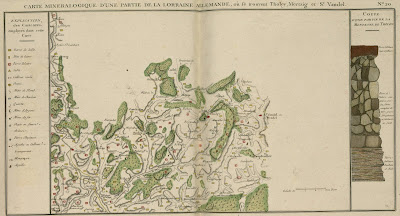
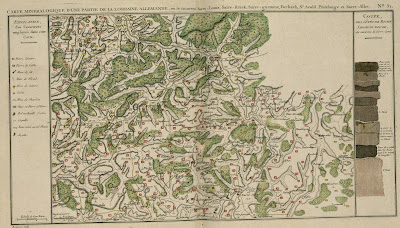
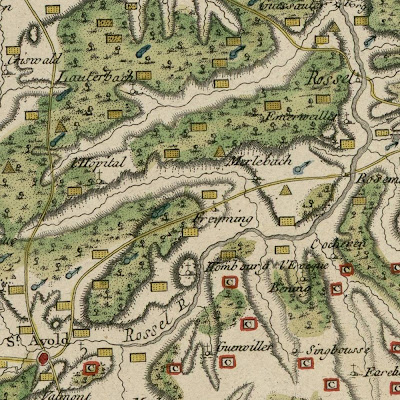
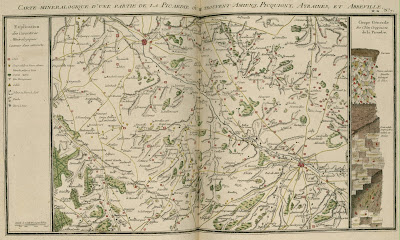


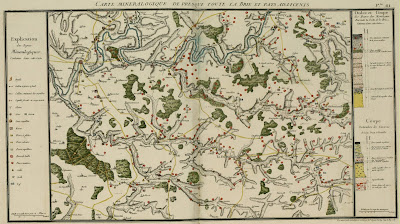
'Atlas et Description Minéralogiques de la France' (1780) by Jean-Étienne Guettard is online in its entirety at Université Louis Pasteur in Strasbourg. {maps start on page p.223 - the detail images above were uploaded at full size: the full maps at the site are large, around 6Mb each}
Jean-Etienne Guettard (1715-1786) acquired an interest in botany from his apothecary grandfather and went on to study botany under Bernard de Jussieu and mineralogy with Réaumur. He worked as a botanist for the French Academy of Science whilst he completed a medical degree and was appointed as doctor to the Duke of Orleans.
His botany interest took Guettard on extended tours around France and to many other parts of Europe where he observed the distribution and relationship of plants to soil and subsoil types. This developing interest in mineralogy and rocks resulted in his sending a draft outline of his findings to the French Academy of Science in 1746 which included the first ever geological map of France.
"His interest in plant distributions led him to begin drawing maps of the occurrence of various minerals and rocks. It became conspicuous to him from his maps that the rocks were not randomly distributed, but arranged in bands and could be followed from one area to another. His maps became larger and more detailed, documenting rocks, minerals, and fossil shells that were embedded in rock bands across France. He was surprised and delighted to find the same rock bands on both sides of the English Channel. The publication of his map in 1751 marks the beginning of the science of geology."Guettard published a number of books as he further expanded his study of French mineralogy and together with the legendary polymath chemist Antoine Lavoisier, Guettard was commissioned to undertake a comprehensive geological survey of France. Although the study was never completed, the maps above give a fair indication of the extent of detail included in their work.
Guettard is also remembered for having proposed the theory that the mountains in the Auvergne region of France were in fact extinct volcanoes - a conclusion he made after having seen similar but active terrain in Italy. "Therefore, Auvergne is said to be one of the birthplaces of the science of volcanology."
- Jean-Étienne Guettard at wikipedia.
- Short biography.
- Brief translated page from Les Annales des Mines.
- Brief book review of a 1999 re-release of 'Mineralogie du Dauphine' by Guettard.
- The first few geological maps of France.
No comments:
Post a Comment